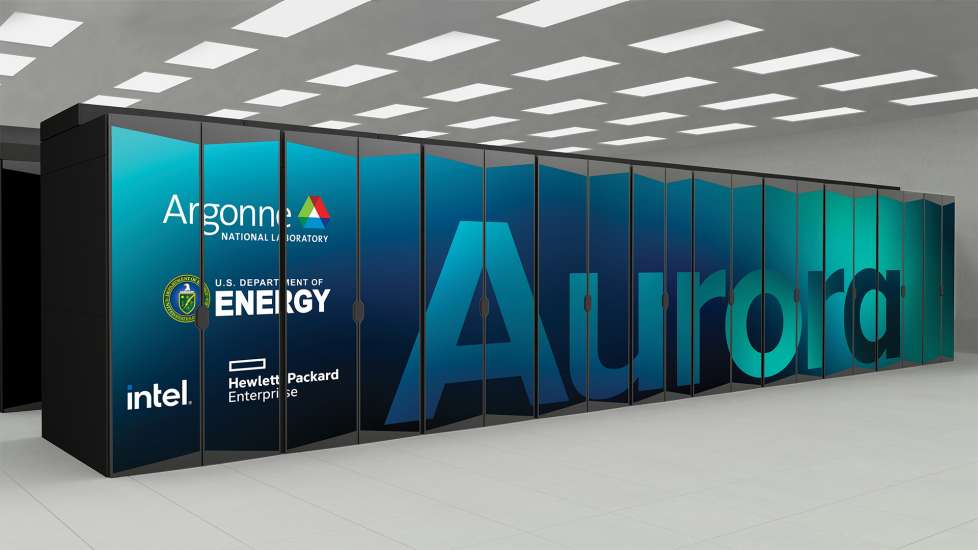During the announcement of its Aurora supercomputer at ISC23, Intel took the opportunity to announce Aurora GenAI. This new AI model developed specifically for the sciences contains 1 billion billion parameters.
What are Aurora GenAI's capabilities?
Announced at ISC23, Intel has taken the opportunity to announce, alongside its Aurora supercomputer, an AI model called Aurora GenAI. Specially designed for science, driven by proprietary datasets of general and scientific texts, data and scientific codes, this model is 5.7 times more powerful than GPT-4, which contains 175 million parameters.
In its announcement, Intel also mentions a partnership with HPE and the Argonne laboratory. The aim of this agreement is to create new AI models based on Aurora GenAI, specialized in various scientific fields.

What will Aurora GenAI do ?
This new artificial intelligence model can be applied to various fields:
- Biology
- Oncology
- Climatology
- Cosmology
- Materials chemistry
The resulting models will be used in a variety of scientific applications. Researchers will find models for everything from molecule design to energy production to power generation. Models will be able to speed the identification of biological processes linked to cancer and other diseases, and suggest drug designs.

The design of AI models in the scientific field will accelerate research and development in these different sectors. If you liked this article and if you are considering a career in Data Science, don’t hesitate to discover our articles or our training offers on DataScientest.
Source : intel.com










